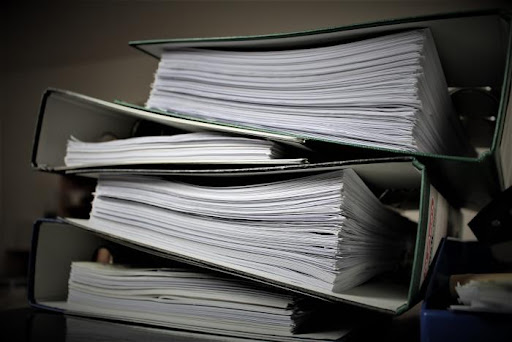We all have important documents that we’d hate to lose, but let’s face it, accidents can happen even within the comfort of our homes, ranging from burglary to floods and fires. So, how can we ensure our valuable paperwork remains safe and sound? Here are some essential tips to consider:

Compile all documents
The first step may be the most tedious, but also the most important — get all your documents in one place so you can file and safely store them. Examples of the types of home-related records and other papers you should put together include:
- Buyer’s agent agreement;
- Purchase agreement;
- Addenda, amendments or riders;
- Seller disclosures;
- Home inspection report;
- Closing disclosure;
- Title insurance policy;
- Property deed;
- Mortgage agreement;
- Home and product warranties for systems like the water heater, furnace and major appliances;
- System and appliance operating manuals;
- Construction plans and permits for any past remodels;
- Leases and transferable contracts from the seller, i.e. a solar energy system lease;
- Service contracts and receipts for lawn care, pool maintenance, etc.
As long as you are gathering important documents from your home purchase to organize and file, consider taking this opportunity to assemble other documents you may want to keep in a safe and easily accessible spot. Here’s a good checklist:
- Birth and death certificates;
- Marriage licenses;
- Social security cards;
- Passports;
- Wills;
- Medical records;
- Insurance policies;
- Automobile documents;
- Credit card documents;
- Investment documents;
- Loan documents;
- Banking records;
- Tax records;
- Transcripts and diplomas;
- Monthly bills and receipts. Source: FamilyHandyman
Get a home safe
Original documents or copies that you need to keep at home can be kept in a home safe. Your home safe should at least be fireproof, waterproof (if possible) and have a secure locking mechanism. While you can opt for a small portable safe, they do not offer the same protection as a heavier safe that’s securely bolted to the floor.
A home safe allows you to access important documents at a moment’s notice and keeps them safe from emergency events, like fires or floods. Source: BudgetDirect
Secure them with plastic
When storing your documents in a safe, you’ll want to protect them from any wear and tear or accidental spills. One way to do this is by using plastic page slips. Put documents in a plastic sleeve and then file in a binder or box. The binder can then go inside your safe. Each document should be in its own plastic page. Source: Safewise
Can’t decide which home safe will best fit your budget and needs? We’re here to help. Give us a call, and we’ll guide you through the options, ensuring you find the perfect safe to protect your valuable documents.
